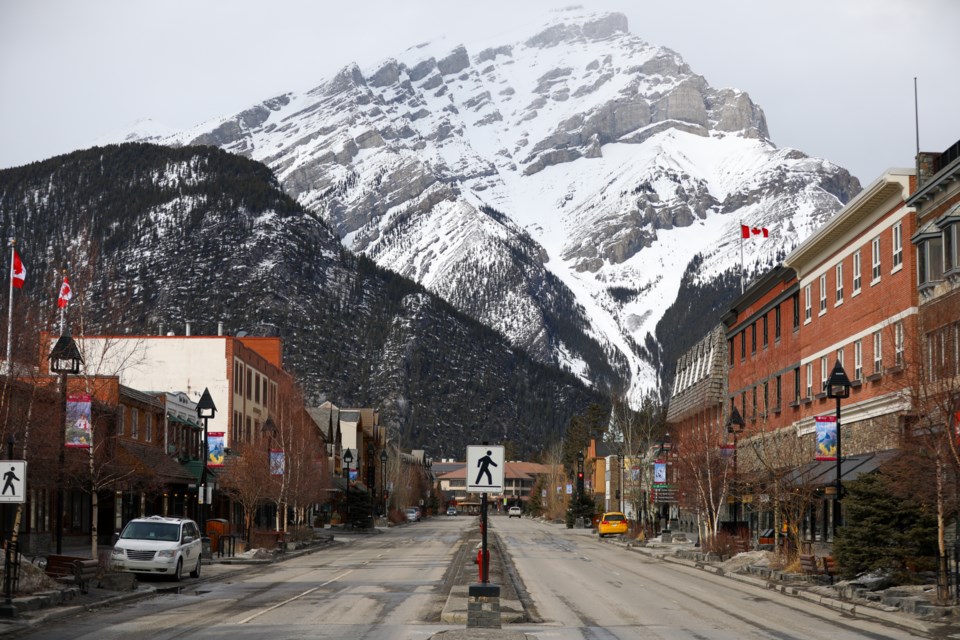BANFF – Banff council is looking at deeper cuts to its operating budget to help businesses and residents through the COVID-19 crisis.
Administration came up with a $1.3 million reduction to the tax levy as a starting point, resulting in a 3.3 per cent cut, but council has asked them to prepare four scenarios – a 10, 15, 20 and 30 per cent reduction in the municipal tax levy compared to 2019.
To do that, council has directed administration to look at additional wage savings on top of what has already occurred, a reduction in the $4.5 million transfer to capital reserves, using a portion of the $1.2 million surplus and cutting services and programs.
Mayor Karen Sorensen said she hopes there is financial support for municipalities in the coming weeks from higher levels of government, but in the interim, believes opening up the budget to look at different scenarios is the right thing to do.
“It will be fascinating to know what is going to change in the next three weeks, what types of funding is going to be available for us,” she said at a council meeting Thursday (April 16).
- RELATED: Town of Banff looking at deeper salary cuts during COVID-19 pandemic
Businesses, including Banff and Lake Louise Hospitality Association, are calling on council to make deeper cuts of up to 35 per cent to the municipal tax levy.
A 30 per cent cut in the municipal tax levy would equate to about $6 million.
Ossi Treutler Jr., a former Banff town councillor, asked council to substantially cut the budget.
“I’m happy I’m not sitting there right now because you guys have a hard job, but cutting the budget is a mandatory thing you have to find a way to do,” he said.
“Please do everything you can to reduce, and spend nothing that you don’t have to.”
Like many businesses in town, Treutler Jr. said unfortunately he has had to lay off all his staff.
He said many businesses need the municipality’s help with reduced taxes, noting some of the federal financial packages available to businesses have been no help.
“I am trying to apply for any help that I can from the government, but it’s been pretty dismal,” he said. “The 75 per cent wage subsidy would be nice, but I have to be open to be able to get that.”
Stavros Karlos, a longtime businessman and former town councillor, said there are very few communities that have to deal with the magnitude of 85 per cent unemployment.
If current revenue declines for businesses are not addressed more directly by all levels of government, he said the number of businesses facing permanent closure will continue to increase.
Karlos said about 10 per cent of restaurants across Canada have permanently shut their doors.
“As council is aware, this is an industry that generates the majority of its annual revenue in the months of May through October,” he said.
Beyond that, Karlos said more than 50 per cent of tourism businesses are sole proprietorships, meaning they are not currently assisted by direct supports offered by the federal government.
“Canadian citizens by and large have been assisted with the provisions of basic income, but tourism and hospitality businesses are at high risk of insolvency as the COVID-19 lockdown continues,” he said.
Karlos implored council to cut taxes by a minimum of 30 per cent.
“If the commercial sector collapses, the residential ratepayer will be left to the shoulder the mounting costs,” he said.
Councillor Peter Poole was unsuccessful in convincing his council colleagues to consider what a 50 per cent reduction in the municipal tax levy may look like.
“We’ve heard from members of the business community … that so far retailers are completely shut down, hospitality [businesses] are over 80 per cent shut down, there's zero revenue coming in,” said Poole.
“A drop of 10 or 15 per cent might be significant, but comparing 10 per cent with say a 50 per cent drop would really help us think through it better in the next couple of weeks. I would encourage us to imagine bigger differences than going for something more moderate.”
Coun. Grant Canning couldn't support such a cut.
“At this point in time, I think that’s just taking it too far,” he said, “I was comfortable with 30, so at this point that is the farthest limit I’m willing to look at.”
So far, the Town of Banff predicts a loss of revenue of about $680,000, including in areas such as RCMP and bylaw fines, planning and development fees, special events revenue and fees from the Fenlands recreation centre.
In its early round of cuts from the operating budget, about $600,000 in wages and benefits have been eliminated.
Chris Hughes, the Town of Banff’s corporate services director, said the municipality must be flexible in its response to the pandemic as the local situation changes.
“Nobody has a crystal ball and we don’t know what business is going to look like in the next six, 12, 18 months,” he said.
Council directed administration to come up with a mill rate split that shares the tax burden equally between the residential and commercial sector.
“We’re all in this together,” said Mayor Sorensen.
Follow RMOToday.com's COVID-19 special section for the latest local and national news on the coronavirus pandemic, as well as resources, FAQs and more.




